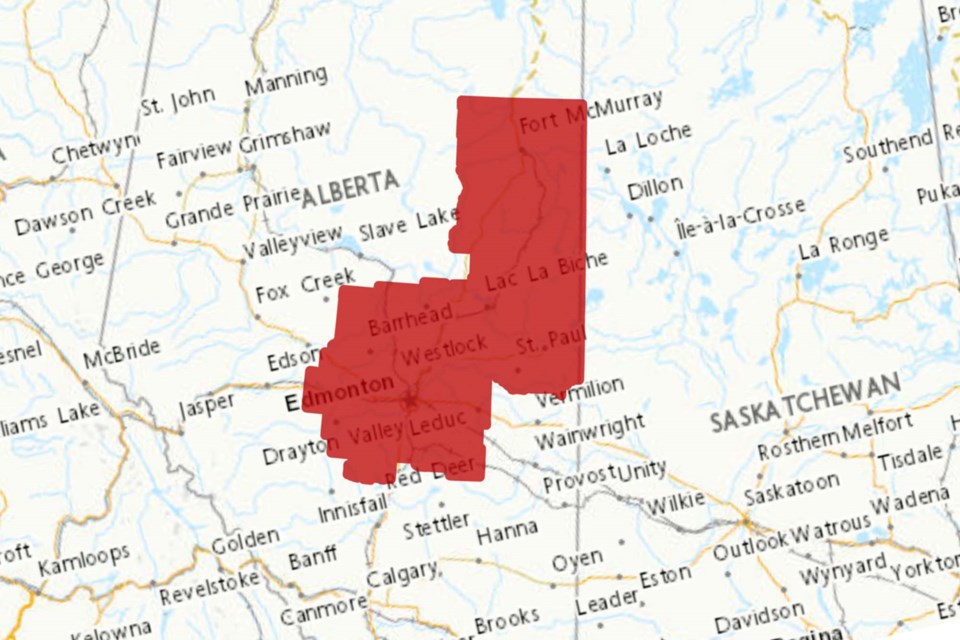Heat warnings have been issued for areas in central and northeast Alberta.
On May 3, Environment and Climate Change Canada (ECCC) issued a heat warning for the Edmonton area extending north to Fort McMurray and south to Ponoka.
“Heat warnings are issued when very high temperature conditions are expected to pose an elevated risk of heat illnesses, such as heat stroke or heat exhaustion,” stated the ECCC warning.
In the Edmonton region, temperatures are expected to reach a high of 31 degrees Celsius with a UV index of six or higher on Wednesday with Thursday forecasted as reaching a high of 30 degrees Celsius and a UV index of six or higher.
Temperatures are expected to cool down by the weekend, according to Environment and Climate Change Canada.
Environment and Climate Change Canada is advising people in the regions with heat warnings to take precautions such as rescheduling outdoor activities for the cooler times of the day, take frequent breaks from the heat and spend time in cooled indoor spaces.
People in the region should remain hydrated by drinking water and non-alcoholic, non-caffeinated beverages.
Pets and people should not be left inside a closed vehicle for any length of time, and it is advised for people to check for children or pets before they exit their vehicle.
It’s important for people to monitor for symptoms of heat stroke and heat exhaustion. ECCC lists symptoms such as high body temperature, lack of sweat, confusion, fainting, and unconsciousness.
“Pay particular attention to individuals that can experience earlier or more severe effects from heat including infants, children, seniors, and individuals with pre-existing lung, heart, kidney, nervous system, mental health or diabetic conditions, outdoor workers, as well as those who are socially isolated,” the ECCC warning read.
Advice on heat health can be found at www.albertahealthservices.ca/news/heat.aspx
A full list of areas impacted by high temperatures can be found on the Environment and Climate Change Canada Website.
This week’s heat wave comes close to matching temperatures in 2016. According to the ECCC website, the highest temperature for the region between 1996 and 2022 on May 3 was 30 degrees Celsius in 2016. The highest temperature for May 4 for the region was 28.8 degrees Celsius in 2016.
The lowest temperature recorded in the Edmonton region between 1996 and 2022 on May 3 was -6.6 degrees Celsius in 2002. The lowest temperature for May 4 for the region was -5.6 degrees Celsius in 2002.




